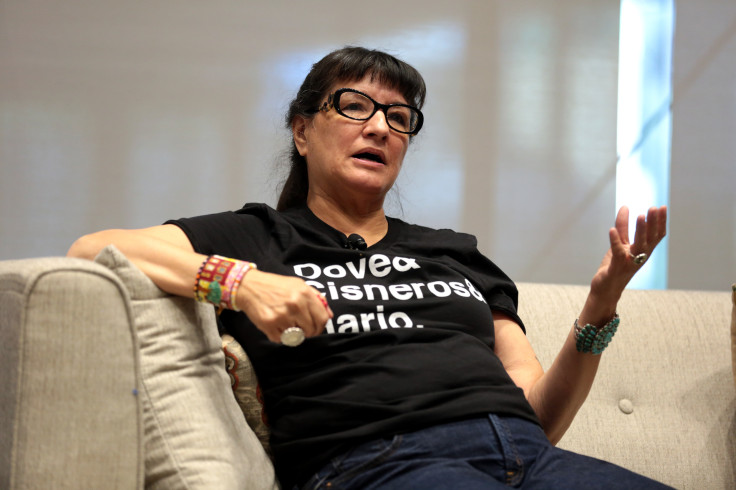
Mexican-American Author Sandra Cisneros was named the 2023 recipient of the Ambassador Richard C. Holbrooke Distinguished Achievement Award for her work fostering peace and social justice, said the foundation that grants the prize.
"Sandra Cisneros is the embodiment of the Dayton Literary Peace Prize Foundation's values of peace and understanding, and her empathetic, perceptive voice is needed now more than ever," said Nicholas A. Raines, executive director of the organization.
Ambassador Holbrooke helped broker the Dayton Peace Accords that ended the Bosnian War in 1995, a conflict Cisneros has often thought of.
"I witnessed a war's effects personally with the 40-year friendship of my hermana-amiga (sister-friend) from Sarajevo. And what I learned was this; the casualties of a war are not simply those killed in warfare. Civilians and unborn generations ever after suffer with the shrapnel of that conflict embedded in their psyche like hidden landmines. I just returned from Sarajevo, and I know this is true," Cisneros said in a statement acknowledging the award. "The repercussions of the Bosnian War have shaped me as both a writer and a human being. I have aspired in my life to strive for unity. I'm enormously gratified to be honored with a prize focusing on peace."
CHICANA WITH THE POWER OF WORDS
Literary critics credit Cisneros with bringing the lives and struggles of Mexican-American women to the path of literary feminism.
Just in time for Hispanic Heritage Month, this award recognizes Cisneros as a citizen with dual citizenship of the United States and Mexico.
Sandra Cisneros was born in Chicago in 1954, the only daughter in a family of seven children. As she herself says, she grew up among her male brothers. But these intermediate spaces were not only destined in her life for the family order, but also in the idea of home that Cisneros had in her childhood, crossed by innumerable movings.
The Cisneros family traveled frequently between Chicago and Mexico, often settling in a different home on each return. Precisely, her literature seems to be a search to build belonging and reaffirmation spaces of that transcultural and border identity of Cisneros, always going back and forth between that in-between that exists in the middle of both cultures.
Perhaps that place of origin or home can be found in one of her first novels –written when she was 22, The House on Mango Street, which marks the beginning of her career in the field of Chicano literature and which also opens up a divergent, authentic, dissonant voice among the traditional female pens of Hispanic literature. The House on Mango Street has sold more than 6 million copies and has been translated into more than 25 languages.
Cisneros relates in interviews how both her father and mother influenced her construction of identity as an artist, poet and writer, but also in the affirmation of a new feminine subject that breaks all the gender stereotypes of both cultures, Mexican and American.
As a single woman, she chose to have books instead of children and in that sense, her artistic figure and her literature come to challenge the cultural models in force in her youth that indicated not only the spaces (private/home) that Latina women should occupy, but also the topics they could write about.
"As part of a broader Chicano feminist intellectual critique of gender roles within Latino culture, Cisneros's fiction and poetry examine the social roles of women in marriage and motherhood," says Olga Herrera, from the Department of English at the University of St. Thomas.
On her website, she describes her latest book of poems, Woman Without Shame, as a moving collection of songs, elegies and statements that chronicle her pilgrimage toward rebirth and recognition of her prerogative as a woman artist. This book of poems seems to celebrate the breaking of taboos and gender structures that cut across the constructions of the feminine identity of Chicana and Latin American women. And this subversion is observed in Cisneros' own writing, in those poems that inhabit everyday spaces like a supermarket but in an erotic, provocative way, celebrating the independence of femininity.
In September 2016, President Barack Obama presented Cisneros with a National Medal of Arts. At the ceremony, Obama said Cisneros was being honored "for enriching the American narrative. Through her novels, short stories, and poetry, she explores issues of race, class, and gender through the lives of ordinary people straddling multiple cultures. As an educator, she has deepened our understanding of American identity."
© 2025 Latin Times. All rights reserved. Do not reproduce without permission.



